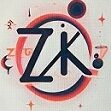The sub-continent’s history is rich with a long list of wonderfully gifted music directors. One of them was S.D Burman whose came up with one musical masterpiece after another for decades. Then his son, Rahul Dev Burman, more commonly known as R.D. Burman took over. It became a case of “Barray mian to barray mian, chootay mian Subhanallah!”
Quite unbelievably, his first composition came at the age of 9, ‘Aye meri topi palat ke aa’, which his father, S.D. Burman used in the film Funtoosh in 1956. It was picturised on Dev Anand. It was a light hearted comedy based song. The most famous in that movie, composed by S D Burman and sung by Kishore Kumar was “Dukhi mun meray, sunn mera kehna”. R D Burman also played mouth organ for his father’s hit composition “Hai apna dil to aawara, na jaanay kis pe aae ga”.
Burman’s first released film as an independent music director was Chhote Nawab (1961). When the noted Hindi film comedian Mehmood decided to produce Chhote Nawab, he first approached Burman’s father Sachin Dev Burman for the music. However, S. D. Burman declined the offer, advising he was unavailable. At this meeting, Mehmood noticed Rahul playing tabla, and signed him as the music director for Chhote Nawab. Burman later developed a close association with Mehmood, and made a cameo in Mehmood’s Bhoot Bangla
RD Burman’s musical genius came to the forefront during the 1960s and 1970s when he transformed the Indian music industry with his innovative compositions. He introduced a unique blend of Western music elements into Indian film songs, creating a distinct style that appealed to a wide range of audiences.
The Burmans are almost all Buddhists but that did not matter when he decided to marry the Hindu female legendary singer Asha Bhosley. He started as a music assistant and quickly went on to become a music director From the 1960s to the 1990s, Burman composed musical scores for 331 films, bringing a new level of music ensemble with his compositions.
Amongst others, Lata acknowledges her love and debt for the departed composer and says her brother-in-law “was immensely talented and could compose in any style.” “… he knew exactly which song to give to which singer. If he gave my sister Asha Bhosle “Piya tu ab toh aaja”, he gave me “Raina beeti jaaye”.
Born in the musical family of the legendary composer SD Burman and lyricist Meera Dev Burman, R D. Burman or affectionately called Pancham Da. An accepted popular theory goes that as a baby he got nicknamed Pancham because, as a child, whenever he cried, it sounded in the fifth note (Pa) of music notation “Sa Re Ga Ma Pa”; in Hindustani classical music.
He was mainly active in the Hindi film industry as a composer, and also provided vocals for a few compositions like “Mehmooba o mehbooba”. Here comes an amazing fact. According to writer-poet Javed Akhar, RD did not speak Hindi. As soon as lyrics were presented to him, they were translated to Bengali. The Bengali translation would help him understand the mood and feelings of lyrics and he would take his composition building from there on. Javed Akhar also narrated another anecdote involving himself and R D Burman. It was about Javed Akhtar’s wonderfully flowing lyrics, “Ik larki ko dekha to aessa laga. As usual, each line was translated to Bengali and by the time translation ended for these lyrics, he had already made the composition in his mind. It turned out to be a huge musical hit. R.D. served as an influence to the next generation of Indian music directors, and his songs continue to enjoy everlasting popularity everywhere.
RD Burman breathed his last on 4th January 1994 at the age of 54. The iconic celebrity s died leaving a treasure mountain of songs. However, his financial legacy did not match his other success numbers.
